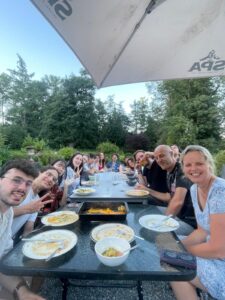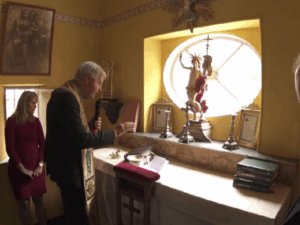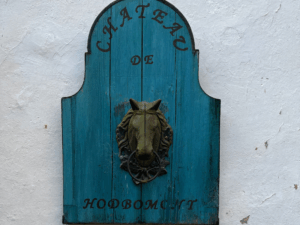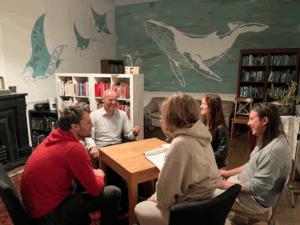 BBC News
BBC NewsBorrowing was £17.4bn last month, the second highest October figure since monthly records began in 1993.

Professor Paul Frijters
Have you observed that your children’s pride in their community and history is eroded in the media or at school? Have you seen the reduced interest among the young in family life and in helping society progress, replaced by zombie-like addiction to social media and victimhood? Are you worried you will lose your children to current mainstream education, turning them barren in all ways? Are you worried your children will learn how to function in a decaying system, unprepared for the harsh realities when that system crashes?
We are. We – academics, consultants, educators, and policy advisers from LSE, Yale, the World Health Organisation, Washington, the EU organisations, and so forth – have seen it getting worse for decades. We were deeply moved by what we saw happening to our own children and the students we taught at universities – even the top UK universities. We saw bright-eyed, hopeful young students become fearful to speak their minds in a matter of months after starting their studies, taught to be ashamed of whom they were and cowed into becoming bureaucratic followers, not confident leaders. They became increasingly lonely, shallow, alienated from their family, and self-obsessed, not proud builders of their own lives and of new communities. Lockdowns made it all much worse.
Not merely did our students start to believe they were a burden to the planet rather than a blessing, but they were also lacking vital work skills. They lacked critical thinking and realism about how the sectors of our society actually worked. They came out of universities thinking that government is purely top-down: that leaders could simply choose a bit more GDP, ‘nature’, ‘equity’, or ‘health’ when they felt like it. The ‘how’ and its costs were out of sight. Real leadership is a combination of the coal face – where the question is what is workable – and of what one values.

Our students were not taught what is workable in government, the health sector, the education sector, finance, or any other sector – let alone how to reform them. They were simply educated to fit in, either as a minion doing some office job, or as a ‘leader’ versed in virtue-signalling. That is not a problem whilst the system keeps going as before, but leaves them stranded when the system radically changes. We are hence not surprised at the fear many university graduates now have that they don’t know anything that AI does not also know. In a way, they are right: many don’t know more than AI. They are stranded, unprepared to think on their feet, view things from different perspectives, and adjust. Businesses calls for critical thinking skills and creativity that current education no longer produces. Indeed, IQ levels have dropped dramatically in the UK since the 1990s, particularly at the top end.
What did we do? We decided to build an alternative, calling it Academia Libera Mentis – the academy of the free mind.
Among the initial group of a dozen academics and thinkers, Paul and Erika were willing to take the lead. They were born in the Netherlands around 1970 and met early in their studies, building a life together. Three children, a successful academic career, and stints in four continents later, they took the plunge in setting up this new academy, backed up by Gigi, Tjeerd, Michael, Willem, Andrew, Dolf, Esther, Benno, and many others who also wanted to do more with their life than pay the mortgage and go on holidays.
Academia Libera Mentis and the castle
So, in March 2024 Paul and Erika bought a 260-year old castle in the middle of the Ardennes: Chateau de Hodbomont, once the ancestral home of an entrepreneurial Portuguese sheep-herding family, with a proud history of having sheltered Jews in the Second World War and once serving as an eye-injury sanatorium. The region has as its official motto ‘Pays de Liberte’ (‘lands of freedom’) and displays a strong streak of independence from Brussels. The stars seemed aligned: a place of refuge, of helping people see again, in a region dedicated to freedom.
Of course – given the limited funds a bunch of academics can cough up – the castle was what they call a ‘fixer-upper’. Not so much Hogwarts as Stone Henge: great to look at, but just wait till you have to live there. Half the place was a ruin and the other half barely liveable. The large castle grounds had beautiful ponds and fruit trees, but it was also overgrowing with ivy and had an insatiable need to be mowed and weeded. Large spaces and many rooms also meant many things to fix. As soon as one has overcome one problem, such as a leaking roof, another is discovered, such as mouldy walls and missing insulation. Yet, since March 2024 it has become a home, full of life and beauty brought by those who came to be part of the journey. With each new group of students, the place has not only become more liveable, but also richer in traditions and emoluments.
Help came from many enthusiastic academics and professionals, each pitching in their own expertise, adding to the endeavour. For instance, whilst we are not a religious academy, we do openly value the accomplishments of the West and the place of the church therein. Theo, a retired Catholic priest, thus found us, joined us, and renovated the chapel of the castle, which was consecrated by a bishop on September 21st. Mass can now be given at our academy for those of the faith.

Similarly, top artists and scientists added new elements to the project, ranging from the school-song ‘Minds that dare’, to a world-class curriculum, to new paintings that adorn the halls.
Gradually both the castle and the organisation became populated and connected. Professor Gigi Foster, educated at Yale and now working in Sydney. Professor Ulrike Guerot, working in Bonn and a former supporter of the EU. Dr Delsing the architect and libertarian entrepreneur. Jeffrey Tucker, director and founder of the Brownstone Institute. Dr Piers Robinson and Dr David Bell, experts in propaganda and former leaders of world health institutions. Lodewijk Regout, artist, peace activist, and theatre director. Liberals, conservatives, Marxists, Christians, libertarians, and influencers. Many sharp minds working towards a common cause: a brighter, more informed future, fuller of the various joys offered by the human experience.
Since April 2024, over 100 students from all over the world have come and joined for (parts of) the program. This program is intense with free-flowing discussions on economics, health, neuroscience, statistics, leadership, and the future. It combines the Socratic method of 2,000 years ago with the latest AI – as a tool that adds, not a crutch that replaces. Teachers work together to harmonise their language and arrive at an integrated curriculum, something unique in this world as atomisation among academics is the rule. Yet, our teachers want to find common ground and enjoy learning new things themselves, not just debating to dominate.
What is unusual about the academic content?
Students learn about appearances and reality. We point out this distinction in everything and help students understand both. For instance, in statistics we teach the usual (statistical tests and hypotheses), but also the less talked about art of preparing data for analysis (‘cleaning it up’, ‘weeding out inconsistencies’) and the reality of gathering data (inevitable ‘framing effects’ everywhere). Similarly, we depict organisations dragged down by corruption not in terms of ‘evil people taking over’, but rather the way in which most organisations meet their end: as the virility and pride in the organisation fails, workers and leaders in an organisation stop cooperating to improve the organisation and instead become parasitical on the resources of the organisation. We do not moralise such parasitism but pose the deeper question of how to reform organisations to keep them virile and internally cooperative.
The typical weekday has intense academic sessions in the morning, connected over the weeks and months by leading questions, like
‘Suppose you are the lead architect of a new constitution for the country of Albiona.
How would you set up its institutions, its media, its health system, its education system, its legal system, its economic underpinnings, and so forth?
How would family life function and the relation between communities and larger overarching institutions?
How would you transition from where it is now? Who would be your allies and your enemies?’
These leading questions encourage students to re-imagine their own countries and their own lives. Their answers very quickly become quite intricate, with detailed transition plans on how to get from where we are to where we should be. There is steel in the classroom discussions as the students realise that the job of reforming their societies may fall on them and therefore necessitates a realistic understanding of how the world works.
In the 12-month program, students are individually mentored and set themselves to particular tasks, like thinking of radical reforms to the legal system in their country, or reforming the property market or media sector. They learn the skills one sees in top public servants, consultants, or the founders of start-ups. They can read data and board rooms. They spot the difference between well-oiled new businesses and decaying departments overtaken by parasitism.
Community building
Whilst the mornings are led by academics, the afternoon is for student-lead activities, primarily arts and sports. This grows their emotional and social resilience and fosters a greater appreciation for aesthetic movement, creativity and beauty. A core community activity is communal eating, with cooking done in rotating teams so that everyone learns how to cook for others. To help coordination and prevent conflicts, there are sessions on attentive listening, and group lessons where the students work through modern social challenges (atomisation, gender relations), which they then implement in their student community. We have noticed in our students that few of their generation have ever experienced true community and find the experience intensely exhilarating once they realise that – as Csenge, one of our Hungarian students put it – “community can make us stronger, freer, and more human.”

Alumni help the next group learn the ropes, but as with the academic program, the students start as followers looking for instruction and gradually morph into leaders who take the community by the hand in their endeavours. Students organise trips to towns nearby like Aachen, the birthplace of Charlemagne. They garden together and protect each other. There is a lot of experimentation on campus: students practise leading initiatives by designing and implementing new projects and endeavours, ranging from making a list of the medicinal plants found in our forest to mapping the perimeter with a drone.
How are we preparing our students for the world of work? For one, of course, they become part of an international network of rather free-thinking but well-connected teachers and students. That network also gives them a community to help them understand what is really going on in their society and to give them the belief that better is possible: the ALM community steadies and motivates our alumni to look for opportunities to grow and co-create, both professionally and privately. Most of all, they become much more realistic about how organisations and sectors of the economy work, making them capable of seeing both systemic decay and opportunities for systemic reform.

The journey is far from over. Our first alumni are now trying to make their way in the world (with the first ones finding jobs and marriages through each other!) and our community is slowly expanding. A cat guards the stairs (and the pantry). Our aim remains to be a place of hope and re-growth, spawning similar endeavours throughout the West. Students who want to join the journey and teachers who hope to set up their own new academies in their own countries are welcome.
What about ourselves – has it been worth walking away from a full-time ‘normal career’ that was going well and is now on the back-burner via emeritus appointments and such? We know what we have given up. We now travel less, spend less time in four-star hotels, and eat less caviar. Life is more raw and more stressful. But the company is better and our joy in teaching is more genuine. It feels like we are doing what we were meant to.